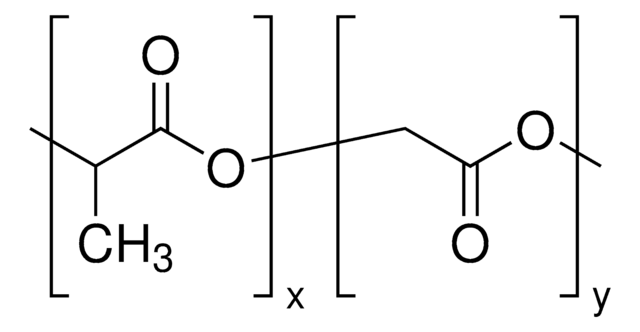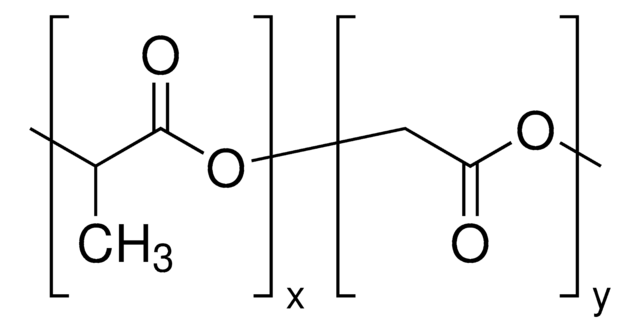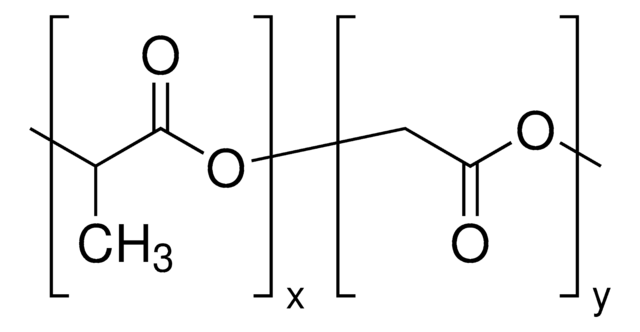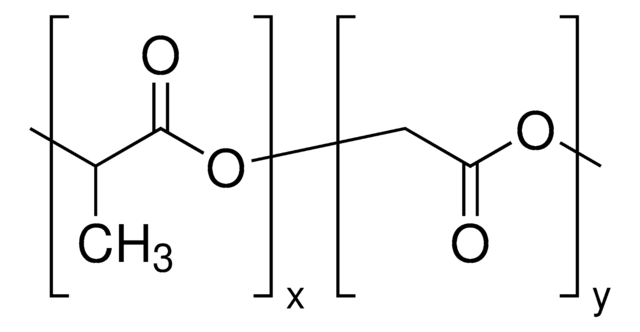739960
Resomer® RG 505, Poly(D,L-lactide-co-glycolide)
ester terminated, Mw 54,000-69,000
Synonym(s):
PLGA
About This Item
Recommended Products
form
amorphous
feed ratio
lactide:glycolide 50:50
mol wt
Mw 54,000-69,000
degradation timeframe
<3 months
viscosity
0.61-0.74 dL/g, 0.1 % (w/v) in chloroform(25 °C, Ubbelohde) (size 0c glass capillary viscometer)
transition temp
Tg 48-52 °C
storage temp.
2-8°C
InChI
1S/C6H8O4.C4H4O4/c1-3-5(7)10-4(2)6(8)9-3;5-3-1-7-4(6)2-8-3/h3-4H,1-2H3;1-2H2
InChI key
LCSKNASZPVZHEG-UHFFFAOYSA-N
Related Categories
General description
Application
Legal Information
Storage Class Code
11 - Combustible Solids
WGK
WGK 3
Flash Point(F)
Not applicable
Flash Point(C)
Not applicable
Certificates of Analysis (COA)
Search for Certificates of Analysis (COA) by entering the products Lot/Batch Number. Lot and Batch Numbers can be found on a product’s label following the words ‘Lot’ or ‘Batch’.
Already Own This Product?
Find documentation for the products that you have recently purchased in the Document Library.
Customers Also Viewed
Articles
Interest in utilizing biodegradable polymers for biomedical applications has grown since the 1960s.
Synthetic aliphatic polyesters dominate resorbable biomaterials in clinical use.
Synthetic aliphatic polyesters dominate resorbable biomaterials in clinical use.
Synthetic aliphatic polyesters dominate resorbable biomaterials in clinical use.
Our team of scientists has experience in all areas of research including Life Science, Material Science, Chemical Synthesis, Chromatography, Analytical and many others.
Contact Technical Service








